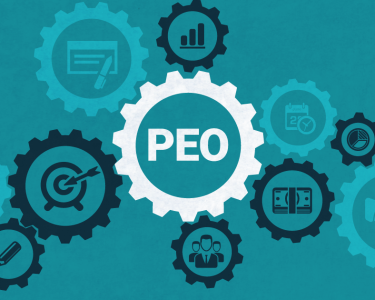PEO for Startups: How Professional Employer Organizations Help Young Businesses Thrive
Wiki Article
Launching a startup is exciting, but developing a successful business takes more than simply a great idea—it also requires managing people, payroll, compliance, and benefits. For many founders, these administrative tasks get overwhelming. That’s when a startup peo can create a big difference.
What Is a PEO?
A Professional Employer Organization is really a third-party firm that partners with companies to deal with human resources (HR) functions such as:

Payroll processing
Benefits administration
Compliance with employment laws
Employee onboarding and offboarding
Workers’ compensation and risk management
When a startup works with a PEO, all parties enter into a co-employment arrangement. The startup still controls day-to-day operations and business decisions, nevertheless the PEO protects HR and employment administration under its own Employer Identification Number (EIN).
Why PEOs Are Valuable for Startups
Startups will have small teams, tight budgets, and almost no time to manage HR intricacies. A PEO offers:
Time Savings – Founders and small teams can give attention to product development, sales, and growth rather than payroll runs or compliance headaches.
Cost Efficiency – By pooling employees from multiple companies, PEOs can negotiate better rates for health insurance, retirement plans, and also other benefits.
Compliance Protection – Employment laws and tax regulations change often. A PEO ensures your startup stays compliant with federal, state, and local rules.
Access to Big-Company Benefits – Even if your team is small, it is possible to offer attractive benefits which help you compete for top talent.
Scalability – Whether you might have three employees or thirty, a PEO can grow along with you without requiring you to overhaul HR systems.
How PEOs Work with Startups
The process typically involves:
Needs Assessment – The PEO learns about your startup’s HR needs, goals, and compliance challenges.
Co-Employment Agreement – Both parties sign an authorized agreement outlining responsibilities.
Implementation – The PEO creates payroll systems, benefits plans, and compliance frameworks.
Ongoing Support – You focus on running the organization while the PEO manages HR operations in the shadows.
Choosing the Right PEO for Your Startup
When evaluating PEOs, search for:
Accreditation (e.g., from ESAC or IRS Certified PEO status)
Industry exposure to startups or small businesses
Transparent pricing without hidden fees
Scalable services for future growth
Strong technology platform for easy employee self-service
For startups, partnering which has a PEO often means the difference between getting bogged down in paperwork and pushing forward with growth. By outsourcing HR to experts, founders can reclaim time, reduce risk, and gives competitive benefits without breaking the bank.
In the fast-moving startup world, efficiency is everything—and a PEO may be the secret ingredient to scaling smarter.